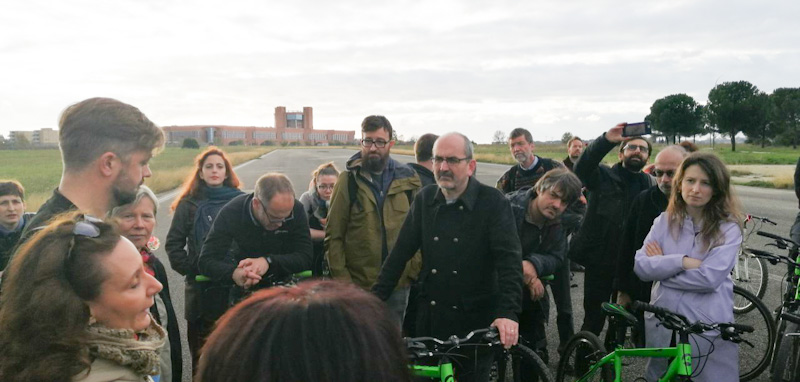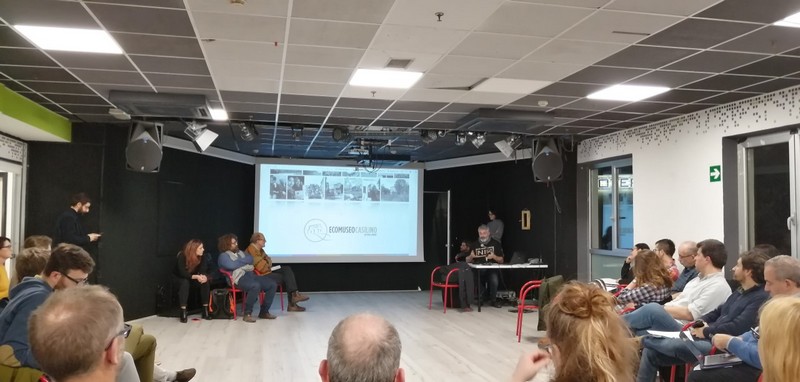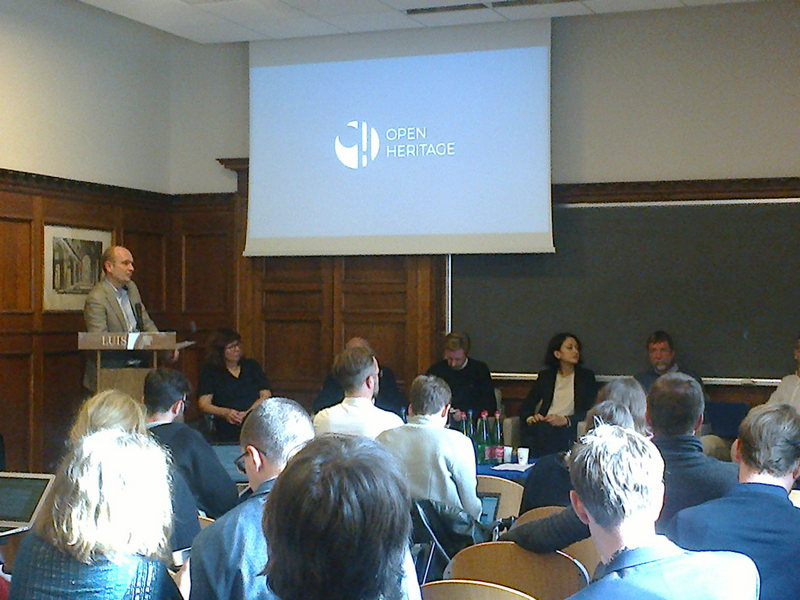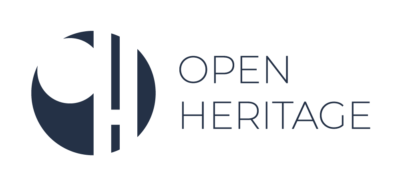OpenHeritage – consortium meeting in Rome
In December we participated in one of the consortium which take place twice a year. The hosts are always partners who are responsible fro OpenHeritage Labs. This time we were guests of LUISS and Univeristy Roma Tre. LUISS is Laboratory for the Governance of the commons, an international applied research laboratory and partnership between the University of LUISS in Rome and the University of Fordham in New York, which implements the idea of a “cooperating city” or partner city in several cities in Italy and around the world. The research and implementation project involves creating and supporting a space for cooperation in the city: cooperatives, new places or institutions in which new forms of enterprises are created – open, based on cooperation, using new technologies. LUISS is inspired by the principles and research methods of the 2009 Nobel laureate Elinor Ostrom.
Our partners from Roma Tre work at the Faculty of Architecture (DARC), which was created in 2013. Its goal is to promote innovation and the development of broadly understood architectural disciplines. DARC conducts research and education, engages students, professors and researchers from various fields in joint, interdisciplinary ventures and experiments. Research activity is mainly focused on building a more creative and effective relationship between architecture and other fields. Important topics are protection of built and natural heritage as well as urban regeneration.
The meeting was very intense and apart from workshops and internal discussions, we also had the opportunity to meet people and organizations with whom LUISS and Roma Tre cooperate. Among other things, a meeting was held to review European policies on combining sustainable development goals with heritage protection and enhancement. We listened to the presentations such as “The EU Policy framework on participatory governance of culture and cultural heritage”(Erminia Sciacchitano, EU Commission DG Culture Policy Officer and Chief Scientific Advisor European Year of Cultural Heritage 2018), “The role of EU policies on culture as a driver of innovation and sustainability” (Mark Thatcher, LUISS Political Science ), “Empowering Communities through Archaeology and Heritage”(Peter Gould American University of Rome).
We also visited the very extensive area of the Roman OpenHeritage Lab – Centocelle, located in the southeast of the city. The area encompasses fragments of several districts such as Centocelle, Alessandrino and Torre Spaccata, inhabited by approx. 300,000 people. It is a very difficult area in economic and social terms, and at the same time very valuable for historical reasons. Its heritage is archaeological, architectural, social and environmental. Many activities are underway to include local communities in co-managing these tangible and intangible values.
One of the most important monuments in this district is the Centocelle Public Archaeological Park, rich in the archaeological findings, remains of public and religious buildings, such as the ancient “Osteria di Centocelle”, two Roman villas (Villa della Piscina and Villa ad Duas Lauros), but also modern facilities, such as the historic Centocelle tunnel, the building that was to be the first subway in Rome, and the airstrip from which the famous pilots and inventors Wright brothers took off on their first flight in Italy. The first airport in Italy was also opened here in 1909.

Centocelle. Photo: Maciej Czeredys
Many people and organizations cooperate in the area. Some of them (CooperACTiva, OfficineZero and Tor Bella Monaca) presented their activities during a visit to FusoLab 2.0, a meeting place for event involving residents.

Meeting with partners of the Roman Lab Centocelle in FusoLab 2.0. Presentation of methods of cooperation with the local community to identify heritage values. Photo: Katarzyna Sadowy.
The main topic of the meeting was a summary of the first half of the Labs operation and preparation of the first reports for the European Commission. Warsaw PragaLAB heard a lot of words of appreciation, which means that next year we will have to meet high expectations… Many people also remembered with pleasure the autumn conference Informed Cities Forum in Warsaw, co-hosted by OW SARP.
Most of the work on mapping and gathering information on how heritage protection activities and its adaptation to new functions have been financed in 15 European countries has been completed. We discussed the ways of disseminating this knowledge through the project website and in the form of traditional book publications, for which we are looking for new, non-stereotypical forms.

One of the many discussions on working methods and what we want to achieve in the next year. Photo: Katarzyna Sadowy.
Good use of participation platforms for individual Labs turned turned out to be a serious challenge for everyone. The platforms operate on the basis of a principle that has worked very well in Barcelona as a tool to involve residents in making joint decisions with public administration. It requires some adaptation for Lab purposes. We encourage you to sign up on the site PragaLAB (www.ohpraga.pl). Along with PragaLAB evolution the new activities and presentations will also be available there.
The next meeting is planned to be hosted by our partners from Great Britain who organize the Lab in Newcastle. In connection with events in their country, we take this opportunity to express our solidarity and ensure that common projects and values will always be more important to us than political divisions.
Authors: Katarzyna Sadowy, Maciej Czeredys
The sole responsibility for the content of this publication lies with the authors. It does not necessarily represent the opinion of the European Union. Neither the EASME nor the European Commission is responsible for any use that may be made of the information contained therein.

